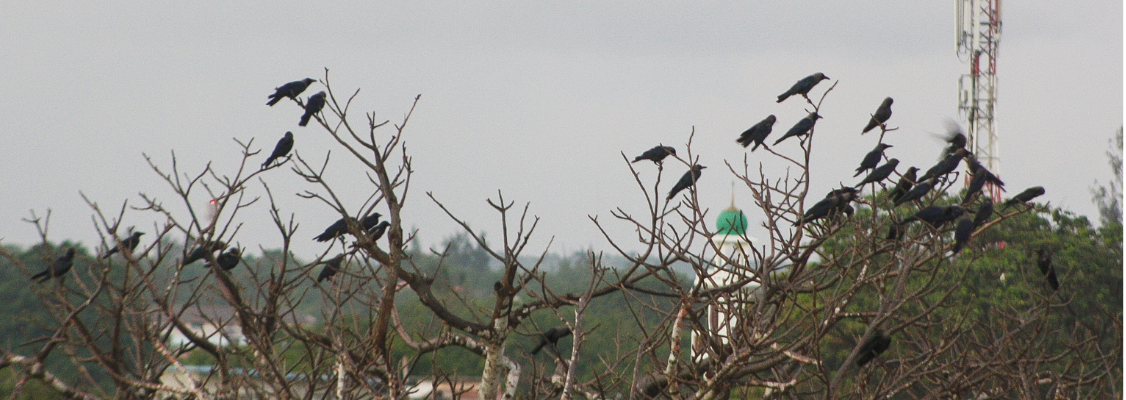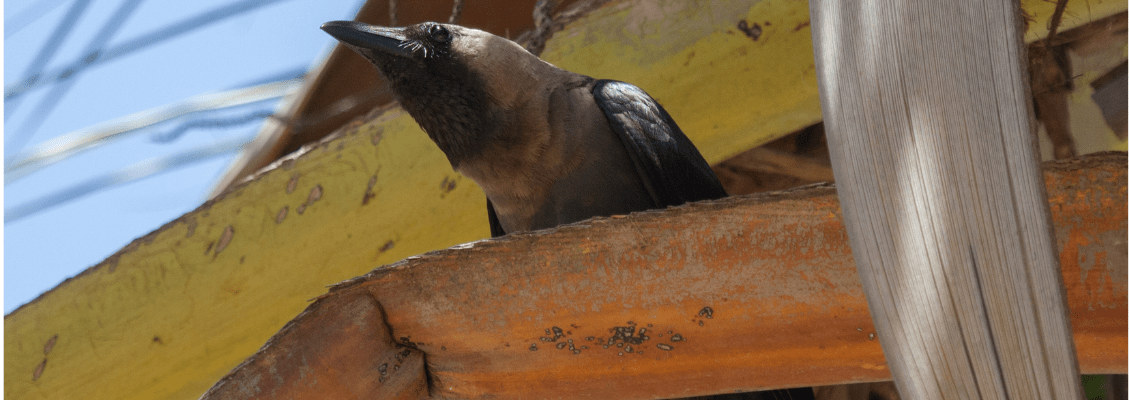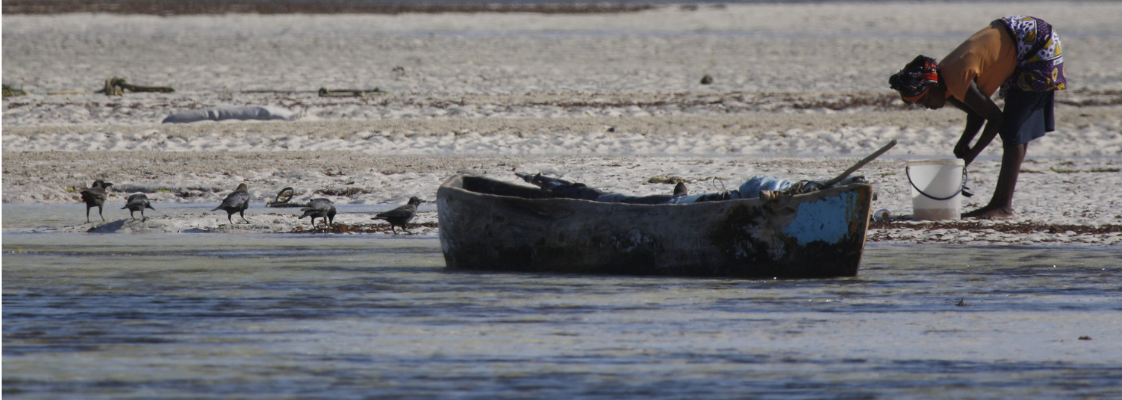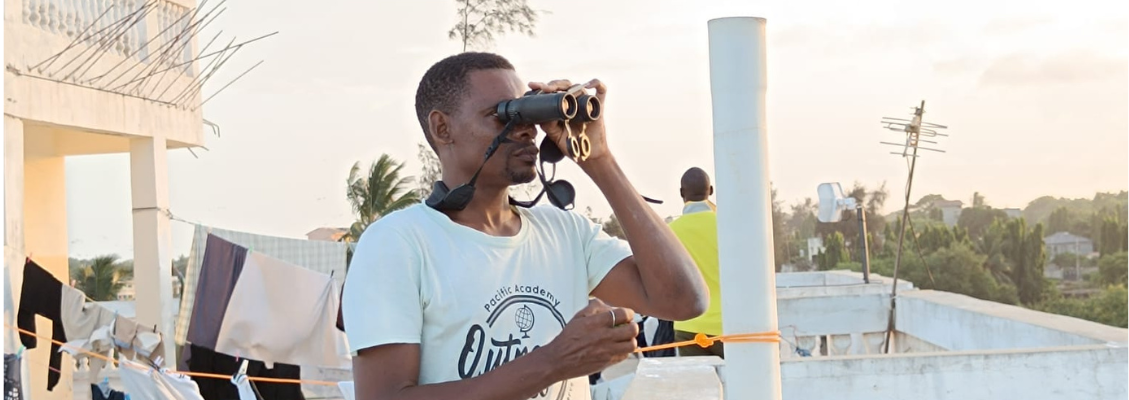The ‘Crows no More! Project’ is a Kenya Wildlife Service project. As A Rocha Kenya, we are happy to help and be part of it.
Brief history of House Crows in East Africa
The House Crow is indigenous to the Indian sub-continent and was introduced to East Africa first in Zanzibar in 1891. Initially, they were a form of ‘pollution control.’ But by 1917, they were rated as a pest with a bounty awarded to any dead crow or crow egg brought in. The presence of crows later spread to mainland Africa and up to Mombasa where they were first recorded in 1947. From there, they have spread up and down the coast becoming ‘common’ in Malindi in the late 1980s and now crows can be found in all the coastal towns and even inland to towns like Mariakani and beyond.
Crows have become a serious pest in many places in Africa from East London (City in South Africa) to Djibouti in the north. Like so many introduced exotic animals and plants all over the world, they have not just spread, but they have extremely proliferated over the years. For instance, a count in Watamu in January 2024 had over 12,000 crows and in March 2024, a count showed that Malindi had >31,000 crows. It not only harasses and kill native small birds but also known to spread diseases, damage crops and are a nuisance to hotels and businesses.

First attempt to control their population
Successful control of the crows was carried out by A Rocha in Watamu and Malindi between 1998 and 2005 using a specific avicide known as Starlicide, which operates over a period of about 10-12 hours. The 10 to 12 hours window gives the crows time to go about their normal business as usual. Usually, they die at the roost sites the night after taking the poison and thus some distance away from where they have fed on the poison. This means the survivors do not associate the death of their fellow crows with a specific site or food. They, therefore, will not be any wiser. Additionally, Starlicide metabolises rapidly and thus a poisoned crow, if found dead, is poison free and can be eaten safely by a scavenger such as a dog or vulture.
Crows are highly intelligent birds. Researchers tell us that they are as good at reasoning as a 7-year-old human. That is why as many measures as possible have to be taken to hide the source of poison if the programme is going to be effective.
How it was done
With support from Turtle Bay Beach Club, Driftwood Club, residents, and other hotels within Watamu, we employed a young man who would alternate between 7-8 days in Watamu and 10-12 days in Malindi. He would pre-bait the crows and then poison them and do daily counts. In this way, we had crow numbers as low as five birds in Watamu and 25-30 in Malindi at times. But with a constant influx of crows from Kilifi and Mambrui, there was a constant need to keep poisoning them. However, the programme was halted by government in 2005 due to bureaucracies and only in 2024 has the green light been given for the control programme to start up again.

Recent history of crow control
A Crow Control Committee was set up by the Kenya Wildlife Service in 2019 of which A Rocha was a member and it was given the remit to make crow control happen. A lot of ground work was carried out and a full proposal for a crow control programme drawn up. Around the same time a landscaping firm, Little Kenya Gardens (LKG), was issued the licence to import the avicide, Starlicide, to carry out efficacy testing as part of the process of getting it formally accepted. In 2020 the Committee was instructed that LKG should carry out the efficacy testing of the poison ahead of a full poisoning programme. With the work having been given to LGK, the Committee had no real function and it ceased operating towards the end of 2021.
In 2022, 2½ kg of Starlicide poison was imported by LKG and an efficacy test poisoning was carried out on south coast at the end of that year. A large number of crows were killed but full reports are yet to be circulated.

But there is hope!
In July 2023, the Director General for KWS, Dr Erastus Kanga, visited Watamu with the new KWS Board for a stakeholder meeting at which he confirmed his commitment to eradicating the crows. He was involved in the Crow Control Committee in his role within the Ministry of Tourism and so is fully aware of the challenges the committee faced. He is therefore very well placed to address the issues and get things happening. It is in this context that A Rocha is reigniting the efforts to control the crows – and reviving the ‘Crows No More!’ project that was started by Nick Trent under the Crow Control Committee.
As A Rocha, we are grateful that we are in an excellent position to support KWS to achieve the crow control given we have a strong history of using the Starlicide poison to significant effect in Watamu / Malindi prior to it being banned. We have been liaising with KWS and are awaiting the final go-ahead to secure the Starlicide from Little Kenya Gardens and implement the control programme.
As we wait, and indeed also throughout the control work, it is important to gather data. We need to know how many crows are there, where they roost and forage so that when it is time, we can target them most effectively. We need to be able to monitor the crows before, during and after the poisoning takes place to make fully informed decisions and ensure the success of the programme.
Since December 2023 our Crows No More Officer, Eric Kinoti, has been organising roost counts, mapping currently used crow traps, gathering data on crow distribution and foraging sites and starting to carry out pre-baiting in the expectation of our being able to secure the Starlicide and implement the control.
Where we are at
From the beginning of the year, a lot of progress has been made on the Crow control programme. Updates on what is happening are usually shared on our social media handles which you can access through: Facebook, Instagram, and X.
On 25th of July, we were able to obtain the first batch of the poison (Starlicide), you can find the full story here. We have also managed to employ 4 field officers to help us implement the project. At the moment, they are doing pre-baiting every morning and evening, as the monitor the roosting sites the crows. We are hoping to start the poisoning process in the next few days.
Further explanation on why we seek to eliminate the crows can be found here.

Thank you for your support
Earlier this year, when the Crows No More! programme started, it was mainly supported by six Watamu hotels to whom we are very grateful: Hemingways, Turtle Bay Beach Club, Watamu Cottages, Ocean Sports, Medina Palms and Temple Point. However, over the last few months, more hotels (both in Malindi and Watamu) and individuals have joined in this course.
The ‘Crows No More!’ Project is a Kenya Wildlife Service (KWS) project . We are extremely grateful to them (KWS) for taking a lead on this initiative and overseeing the programme.
This project is a community project that is being funded by many local hotels, businesses and individuals and we are hugely grateful for the support we’ve received to get it going. It is a costly exercise particularly with poison costing >$5,800 per kg, the need for a team of employed staff spread around the key urban centres where crows are concentrated and transport for getting to baiting sites etc. To date we have been generously funded to over Ksh 3 million – but have a budget of c.Ksh 15 million if we are going to be effective across the entire north coast. Please consider joining us!
Donate
To donate, you can use any of the ways listed below.
1) Otherwise direct Mpesa donations can be received by A Rocha:
Paybill: 303030 (ABSA bank)
Acc: 0121008254
IMPORTANT: Please send the MPESA SMS confirmation to the project coordinator, Eric Kinoti, at +254 742 001 399 or +254 718 422487 so we can track all income.
2) Bank details for direct/online donations to Crows No More! Project:
Bank Name: Absa Bank Kenya
Branch Name: Malindi
Account Name: A Rocha Kenya Mwamba Centre
Account Number: 0121008254
Make sure that there is a reference for ‘Crows No More’
Also, have proof of payment emailed to <[email protected]> and <[email protected]> so that we can keep track of all donations.

